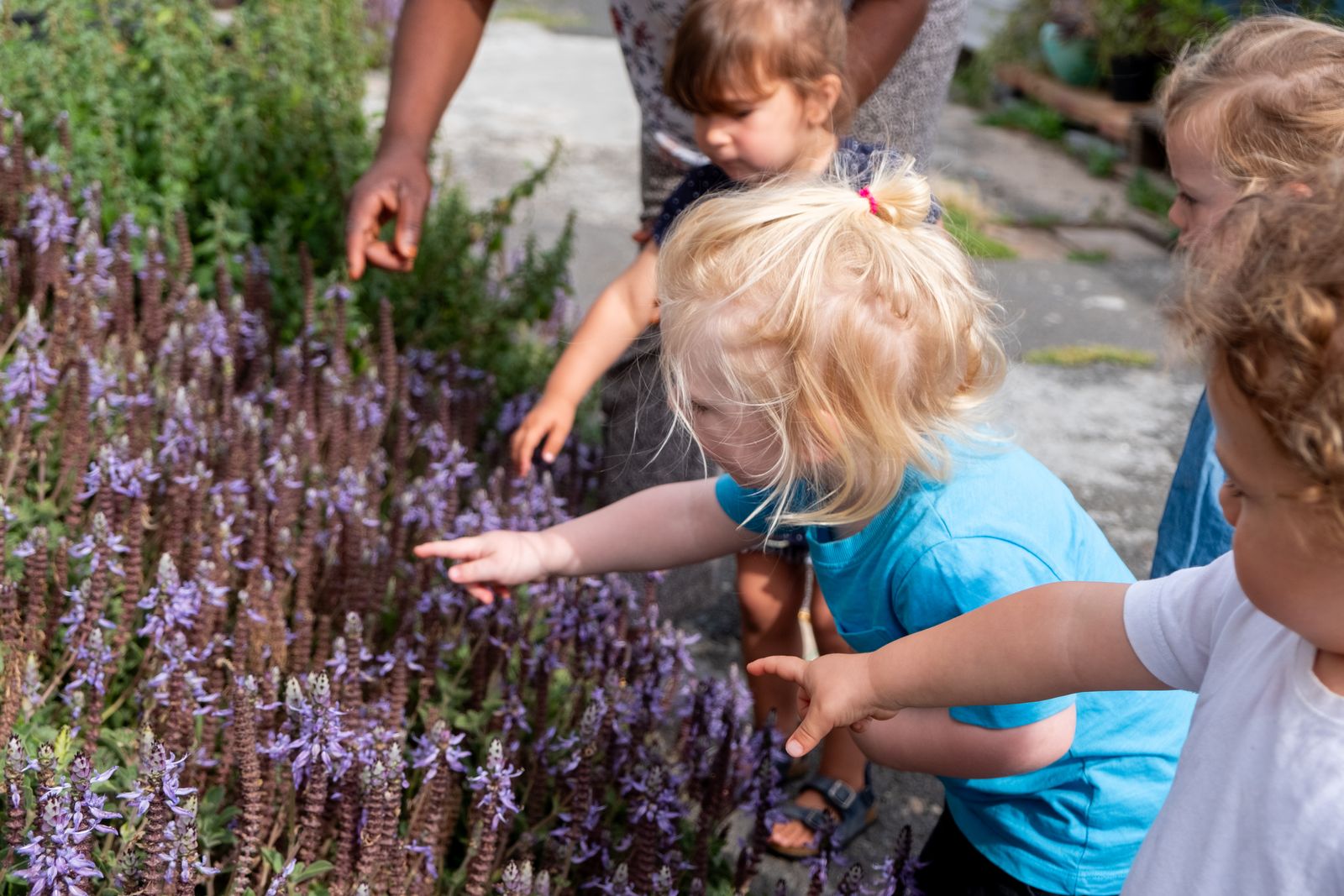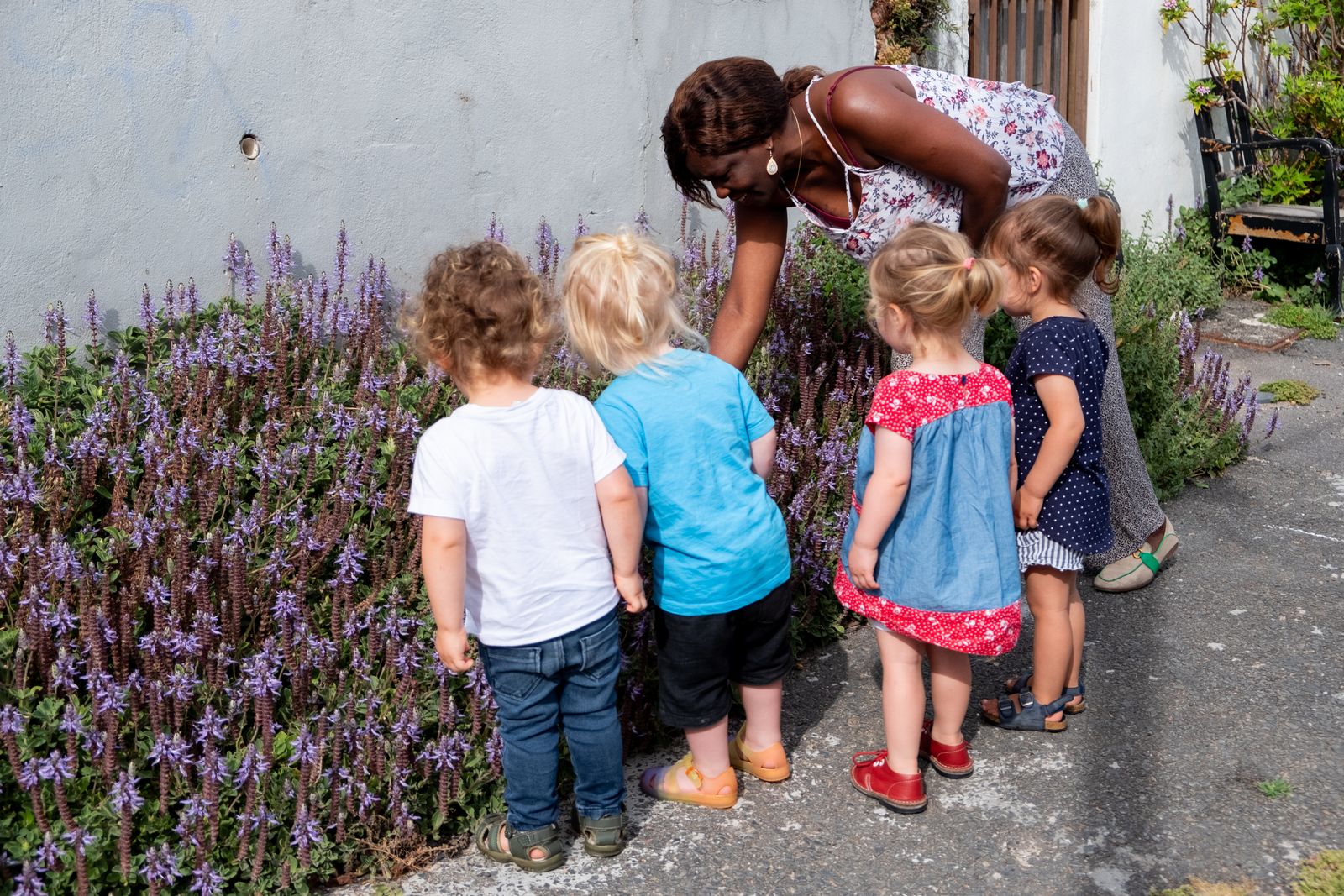Daily routine
A typical day of childcare with me looks like this, and is of course adaptable to different ages and needs:
- Start with a healthy breakfast!
- Nappy change / Potty time
- Circle time (during this time we sing, dance and create a positive energy)
- Daily activity (this is a monthly program with a mix of sensorial discovery, fine motor, music, gross motor, potty training, painting, baking, crawling/walking stimulation)
- Lunch time (this is where we learn to wash hands and eat independently)
- Nap time (smaller babies have more than 1 nap)
- Nappy change / Potty time
- Free play / Outing
- Snack time (fruit snack)
Monthly programs follow themes, such as the ocean, animal habitats, recycling, with crafts and activities all about that theme.

Positive parenting
My approach is based on mutual respect between adults and children. For me as a teacher, positive parenting means setting healthy boundaries which start by respecting the child.
Rather than impose rules, I cooperate and communicate with each child. For example, instead of saying “don’t do that”, I would say “if you do that, you’re going to fall”. I believe it’s important to explain things to children and allow them to ask questions. It’s also important to set good examples.
Potty training support
I think the most important thing to remember with potty training is the collaboration between parents and children. The child must be ready and the parents must be ready!
First comes the preparation phase, where I work together with parents and children to talk about the potty: we read books and sing songs about potty training, to make it fun and interesting for them.
Once they are ready for training, it’s time to sing songs to show them how to sit on the potty. Here, it’s important not to push or force them, it’s normal for some children to struggle with pooping. So we just keep up a good routine and keep reassuring them until they’re fully ready.
Learning to eat
Learning to eat is a messy time, and a time to learn responsibilities! With mealtimes, the children take turns to serve others spoons and water, which they enjoy and it teaches them independence. We always eat together, to encourage social eating and sharing habits.
Food is something I always like to communicate with parents about: I tell them how their child was at lunch and they also inform me of new tastes or eating developments.
Bilingual education
One of my specialisations is bilingual education in French and English. We use basic everyday phrases throughout the day that relate to our eating and play routines, so they learn through repetition, as well as songs in French. It’s an excellent age to learn other languages before the age of 5.
If you are interested in French language education for young ages please ask me about it. This method ensures that your child gets a strong grounding if French is not their mother tongue, or reinforces their native language if French is their first language.

Parent communication
Open communication is the key, so I like to build strong relationships with parents and I like to be direct. It’s important for me that they know what kind of day their child has had. I always keep a record of the day for each parent, with information about:
- Sleep times
- Lunch (how well did they eat?)
- Potty time (how are they progressing?)
- Special achievements / activities
In addition, I let parents know about the other friends their child is making, to help them create bonds with other families too.